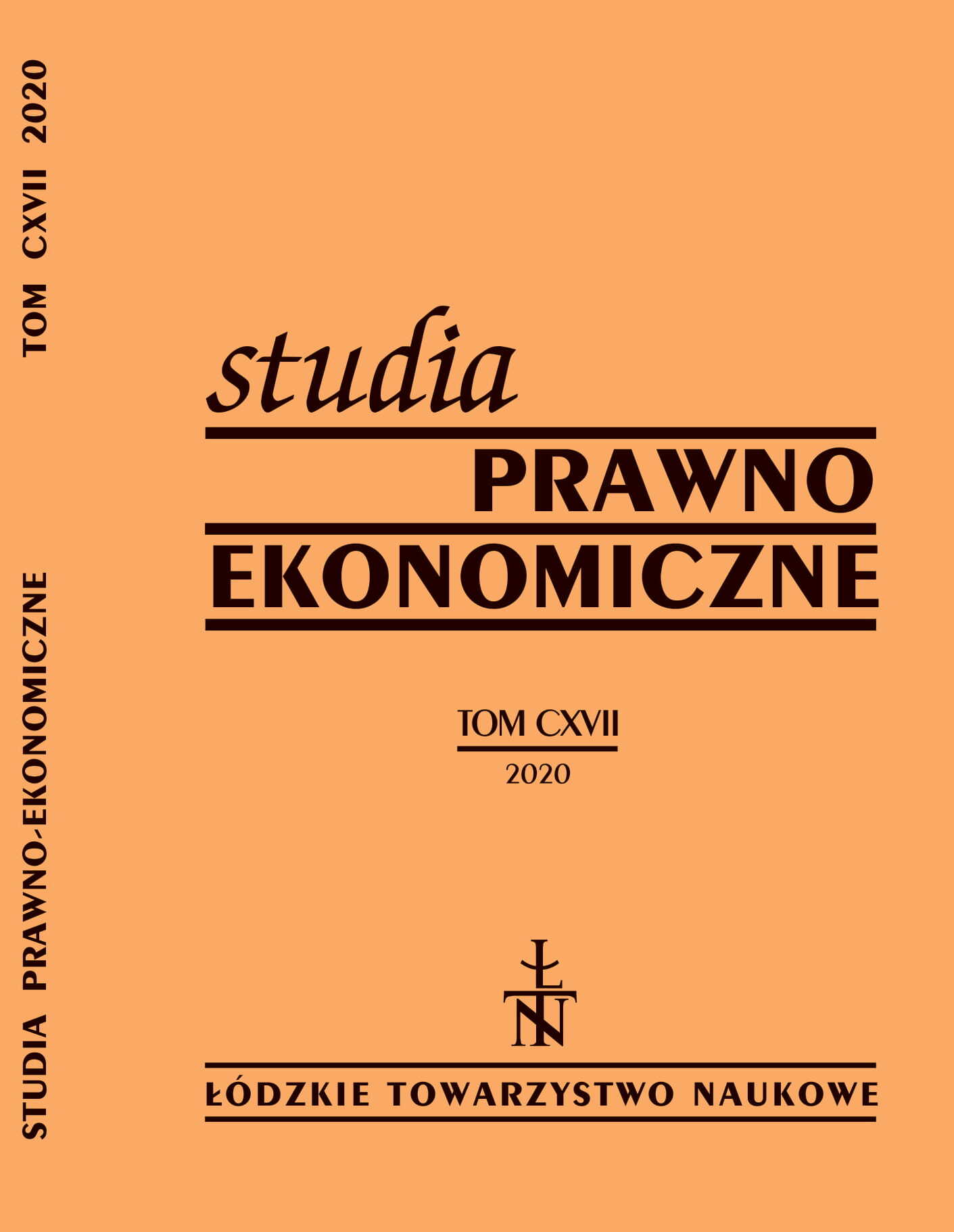The First Industrialists’ Loan Fund under the Kingdom of Poland and the career of Ludwik Święcicki
DOI:
https://doi.org/10.26485/SPE/2020/117/9Keywords:
history of loan funds, act, head of bureau, WarsawAbstract
Background: January 2020 was the 150th anniversary electing the first governing bodies of the Warsaw Industrialists’ Loan Fund (KPPW, Loan Fund), the first credit cooperative founded in the Kingdom of Poland/ Congress Poland. It is worth recalling its origins and progress until the outbreak of the Great War. The professional career of Ludwik Święcicki, the author of the book on the 40-year history of the KPPW and long-time Head of its bureau, was linked with the Loan Fund. Święcicki’s career path to the position of the Head is an interesting example of the professional evolution of an organic work supporter, descendant of the landed gentry family.
Research purpose: The article presents the circumstances in which the founders of KPPW operated. It is to answer questions such as: what amendments to the law were necessitated by the realities of practice, what were the obligations of the members, and what were their possibilities on taking loans and earning income. How the long-time Head of the Loan Fund’s bureau started as a clerk and what events took place during his term of office. The study covers the Loan Fund’s operations until 1913, the year preceding the outbreak of the Great War.
Methods: Publications and prints from before the Great War from the library of the Warsaw School of Economics were used in this study, especially the history of KPPW written in 1910 by Ludwik Święcicki. The knowledge of bills, necessary to understand the Loan Fund’s credit transactions, can be found in the chapter on bill discounting written by the author in a textbook of financial mathematics. Moreover, A.H.T. Święcicki’s book on his family history proved helpful. The information contained therein was verified or supplemented on the basis of archival documents and newspapers. The author is the great granddaughter of Ludwik Święcicki, however the family verbal tradition focused mainly on Zofia Ludwikowa Święcicka. The information deficit spurred her to study the archives.
Conclusions: The approval of the KPPW Act in in the St. Petersburg Ministry of Finance was an engine for the legalization of subsequent financial institutions in the Kingdom of Poland. The pioneer act on the Loan Fund was amended over time, although, despite the pressure from the Ministry of Finance, the institution maintained its independence. The Loan Fund’s credit operations were gradually extended from 1912. In the emerging Polish state, Święcicki volunteered to work at the Ministry of Treasury, and later was appointed as the Director of the Polish issuing bank, the Branch in Łódź.



